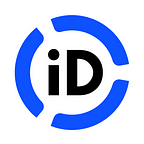Why demand for digital identity is surging in the wake of COVID-19
As large swaths of the world’s population find themselves quarantined or “sheltering in place,” millions are turning to the internet to fill the gaps. That could mean shopping online, working remotely, or checking in with your doctor. Some are even hosting digital happy hours. Heard of a quarantini?
Naturally, that shift — seeing more and more of our day-to-day move online — is driving a growing need for digital identity services, as reported by TechCrunch’s Natasha Lomas.
Some is due to medical needs:
Several online identity verification startups also told us they’ve seen increased demand over the past few weeks — including from parallel growth in telemedicine where remotely verifying a patient’s identity is a core requirement given the sensitivity of the data involved.
Digital identity startup Passbase, which offers APIs to make it easy for developers to plug and integrate a range of consumer-friendly identity checks into their digital services, also told us it’s seen an “unprecedented” spike in requests from European and North American companies operating in the MedTech sector over the past two+ weeks — as more people seek out remote consultations to reduce potential spread of the virus.
…
Another digital identity startup, Onfido — which pledges on its website to be able to verify a person’s identity in as little as 15 seconds — also told us it’s seen a big jump in demand from the healthcare sector.
“Our clients offering remote online consultations have seen a massive 370% increase in the number of applicants since January, compared to last year,” said a spokesperson. “Clearly there are advantages from not having to go into a hospital or a local physician’s waiting room for fear of contracting the virus in the waiting room.”
Others, car rentals:
Customers in the sector are onboarding 26% more applicants this month vs the same time last year, it told us. “The likely explanation is that daily commuters who don’t own a car are refraining from taking public transport for fear of picking up the virus in overcrowded trains or buses, instead electing to drive themselves to work,” the spokesperson noted.
Or banking:
Increased demand for online banking and fintech is also driving usage of its tools at the present moment, per the spokesperson. “Early signs seem to suggest a 21% increase in signups this month. Presumably, so that people can gain access to financial services from their home without the need to go inside branches,” they added.
…
“Coronavirus does present new use-cases and needs for remote ID verifications,” founder and [Veriff] CEO Kaarel Kotkas told us. “For example, we have been contacted by universities who are looking for remote examination options, but also large tech companies for account recovery and credentials reset to support remote work.”
“As to our current clients, we have seen a steady increase in ID verifications over the last month — globally it is around 20% increase. However, it definitely cannot all be accounted for the coronavirus. Yet, when looking at the last 2 weeks when coronavirus has really escalated in Europe and the US, it has triggered a lot of integrations connected to coronavirus like e-notaries, digital healthcare, and others. Therefore we expect a 50% jump in our volumes next month,” he added.
And of course, WFH:
“We had a large muliti-national client that we were working on integrating our ID Verification solution, that a few weeks ago changed the focus of their use case to verify their workers remotely, not only to access company intranet and other systems but as well to allow people now working from home to electronically sign documents and contracts using the Authenteq technology.
All of which should come as no surprise. Because trust is paramount
As the footprint of our online profile expands and as the stakes of our digital interactions grows, so too does our demand for smarter digital identity.
We need to trust that we’re safe out there — including our identity, our data, and our privacy. And we need to be able to trust the people and entities with which we connect.
What we really need is a digital identity that works for us.
You can read the full Techcrunch report here.
